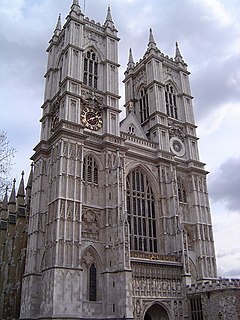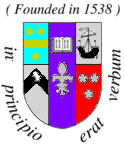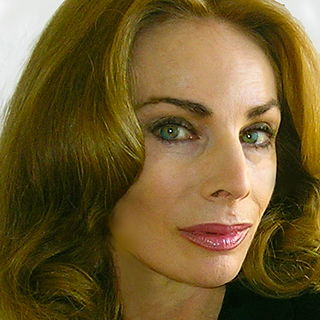Related Research Articles

Secular humanism, often simply called humanism, is a philosophy or life stance that embraces human reason, secular ethics, and philosophical naturalism while specifically rejecting religious dogma, supernaturalism, and superstition as the basis of morality and decision making.

Transhumanism is a philosophical and intellectual movement which advocates the enhancement of the human condition by developing and making widely available sophisticated technologies able to greatly enhance longevity, mood, and cognitive abilities, and predicts the emergence of such technologies in the future.

Religious humanism is an integration of humanist ethical philosophy with congregational rites and community activity which center on human needs, interests, and abilities. Self-described religious humanists differ from secular humanists mainly in that they regard the humanist life stance as their religion and organise using a congregational model. Religious humanism is sometimes referred to as nontheistic religion.
Technology assessment is a scientific, interactive, and communicative process that aims to contribute to the formation of public and political opinion on societal aspects of science and technology. This is a means of assessing and rating the new technology from the time when it was first developed to the time when it is potentially accepted by the public and authorities for further use. In essence, TA could be defined as "a form of policy research that examines short- and long term consequences of the application of technology."

The Church of Scotland, also known by its Scots language name, the Kirk, is the national Christian church in Scotland. In the 2019 Scottish Household Survey, 20% of the Scottish population reported themselves as adherents of the Church of Scotland and, as of 2018, 6% of the Scottish population are members.

John Witherspoon was a Scottish American Presbyterian minister, educator, farmer, slaveholder, and a Founding Father of the United States. Witherspoon embraced the concepts of Scottish common sense realism, and while president of the College of New Jersey became an influential figure in the development of the United States' national character. Politically active, Witherspoon was a delegate from New Jersey to the Second Continental Congress and a signatory to the July 4, 1776, Declaration of Independence. He was the only active clergyman and the only college president to sign the Declaration. Later, he signed the Articles of Confederation and supported ratification of the Constitution.

Humanists UK, known from 1967 until May 2017 as the British Humanist Association (BHA), is a charitable organisation which promotes secular humanism and aims to represent "people who seek to live good lives without religious or superstitious beliefs" in the United Kingdom by campaigning on issues relating to humanism, secularism, and human rights. It seeks to act as a representative body for non-religious people in the UK.
The ethics of technology is a sub-field of ethics addressing the ethical questions specific to the Technology Age, the transitional shift in society wherein personal computers and subsequent devices provide for the quick and easy transfer of information. The topic has evolved as technologies have developed. Technology poses an ethical dilemma on producers and consumers alike. The subject of technoethics, or the ethical implications of technology, have been studied by different philosophers such as Hans Jonas and Mario Bunge. Technology ethics is the application of ethical thinking to the growing concerns of technology as new technologies continue to rise in prominence[1]. Ethics of technology is now an important subject as technologies give people more power to act that before. The development of Artificial Intelligence and rise of social media brings up the questions of how to behave on these platforms and how far is A.I allowed to go. Recent issues such as Facebook data leaks and circulation of fake news highlights the downside of social media when in the wrong hands. As technology continues to develop and have the power to alter people's daily lives, questions surrounding what is ethical or not will remain.

Religion in the United Kingdom, and in the countries that preceded it, has been dominated for over 1,000 years by various forms of Christianity, replacing Romano-British religions, Celtic and Anglo-Saxon paganism as the primary religion. Religious affiliations of United Kingdom citizens are recorded by regular surveys, the four major ones being the national decennial census, the Labour Force Survey, the British Social Attitudes survey and the European Social Survey.

The Institute for Ethics and Emerging Technologies (IEET) is a "technoprogressive think tank" that seeks to "promote ideas about how technological progress can increase freedom, happiness, and human flourishing in democratic societies." It was incorporated in the United States in 2004, as a non-profit 501(c)(3) organization, by philosopher Nick Bostrom and bioethicist James Hughes.

St Mary's College, founded as New College or College of the Assumption of the Blessed Virgin Mary, is the home of the Faculty and School of Divinity within the University of St Andrews, in Fife, Scotland.
Gregory Stock is a biophysicist, best-selling author, biotech entrepreneur, and the former director of the Program on Medicine, Technology and Society at UCLA’s School of Medicine. His interests lie in the scientific and evolutionary as well as ethical, social and political implications of today's revolutions in the life sciences and in information technology and computers.

Natasha Vita-More is a strategic designer, author, speaker and innovator within the scientific and technological framework of human enhancement and life extension. Her interests are located within the ethical uses of science and technology and socio-political implications of revolutionary advances impacting humanity's future.
The Church and Society Council is an agency of the General Assembly of the Church of Scotland, which is tasked with facilitating the Church's engagement with, and comment upon, national, political and social issues.

As recent as the 2011 census, Christianity was the largest religion in Scotland. In the 2011 census, 53.8% of the Scottish population identified as Christian when asked: "What religion, religious denomination or body do you belong to?". The Church of Scotland, a Presbyterian denomination often known as The Kirk, is recognised in law as the national church of Scotland. It is not an established church and is independent of state control. However, it is the largest religious grouping in Scotland, with 32.4% of the population according to the 2011 census. The other major Christian church is the Catholic Church, the form of Christianity in Scotland prior to the Reformation, which accounts for 15.9% of the population and is especially important in West Central Scotland and parts of the Highlands. Scotland's third largest church is the Scottish Episcopal Church. There are also multiple smaller Presbyterian churches, all of which either broke away from the Church of Scotland or themselves separated from churches which previously did so. According to the 2019 Scottish Household survey, since 2009, there has been an increase in the proportion of adults reporting not belonging to a religion to 56%. The trend of declining religious belief coincided with a sharp decrease since 2009 in the proportion of people who report that they belong to the Church of Scotland, from 34% to 20% of adults. Furthermore 13% reported belonging to the Catholic Church.
Science, technology, society and environment (STSE) education, originates from the science technology and society (STS) movement in science education. This is an outlook on science education that emphasizes the teaching of scientific and technological developments in their cultural, economic, social and political contexts. In this view of science education, students are encouraged to engage in issues pertaining to the impact of science on everyday life and make responsible decisions about how to address such issues
Y Touring Theatre Company was a national touring theatre company which produced original plays and debates exploring contemporary issues. It was founded in 1989 by Nigel Townsend. The company was based in Kings Cross, London, England and was a former operation of Central YMCA.
The Centre for Theology and Public Issues (CTPI) is a research centre based in New College, the School of Divinity at the University of Edinburgh. Founded in 1984 by Duncan B. Forrester, CTPI promotes Christian theological reflection and research on important public issues. CTPI research is global in orientation and rooted in the tradition of public theology. Issues are examined by bringing together theologians, social scientists, church leaders, policy makers and the public. CTPI has particularly close relations with the Scottish Parliament and other institutions of Scottish public life. The current director is Jolyon Mitchell.
Irreligion in the United Kingdom is prevalent, and British society is one of the most thoroughly secularized in the world. Agnosticism, nontheism, atheism, secular humanism, and more so casual non-affiliation or apathy, are common. At least 33% of Britons, and over 50% in some recent polls, do not identify with any faith when surveyed. Some 40% of Britons do not believe in a deity, and some 15% are agnostic. While non-affiliation is the primary indicator, objective irreligion does not necessarily correlate with it. A third of Anglicans polled in a 2013 survey doubted the existence of God, while 15% of those with no religion believed in some higher power, and deemed themselves "spiritual" or even "religious."
The acronyms ELSI and ELSA refer to research activities that anticipate and address ethical, legal and social implications (ELSI) or aspects (ELSA) of emerging sciences, notably genomics and nanotechnology. ELSI was conceived in 1988 when James Watson, at the press conference announcing his appointment as director of the Human Genome Project (HGP), suddenly and somewhat unexpectedly declared that the ethical and social implications of genomics warranted a special effort and should be directly funded by the National Institutes of Health.
References
- ↑ "Archived copy" (PDF). Archived from the original (PDF) on 2013-08-28. Retrieved 2013-09-11.
{{cite web}}: CS1 maint: archived copy as title (link) - ↑ "Society, Religion and Technology Project". Archived from the original on 2011-01-05.